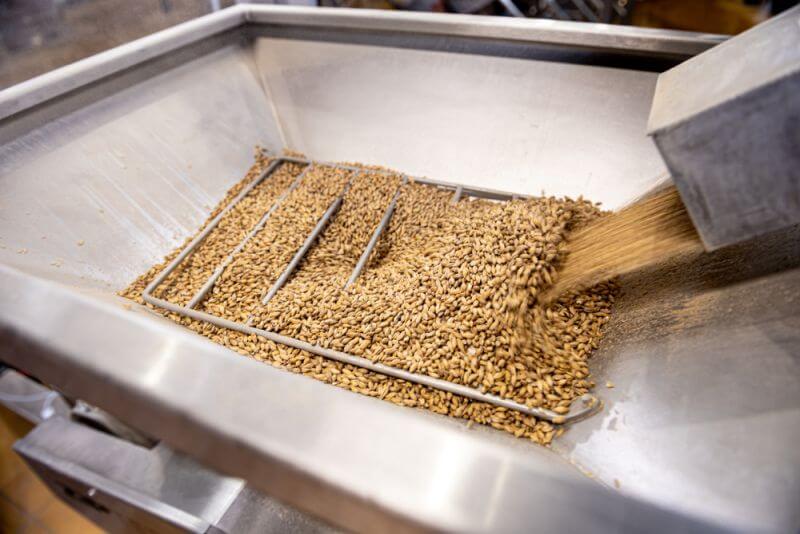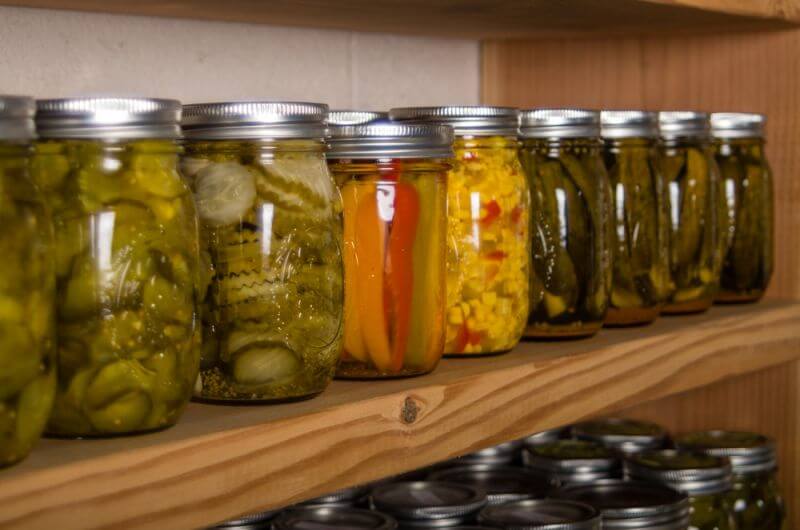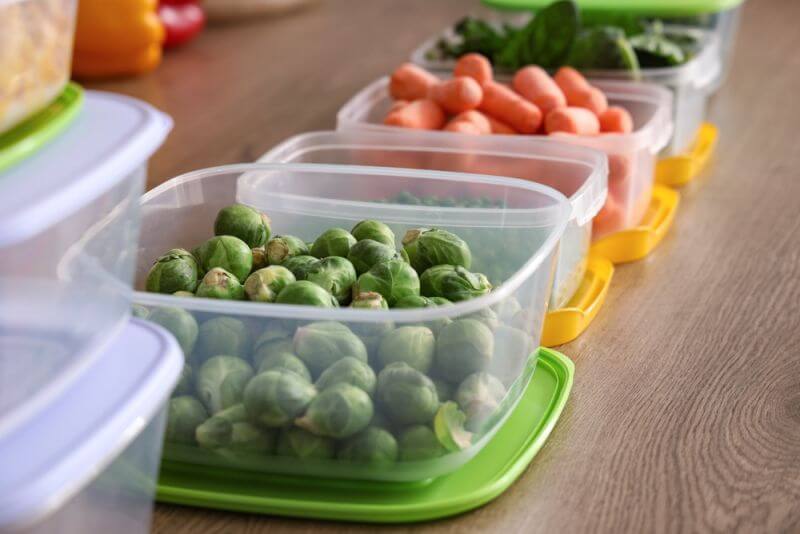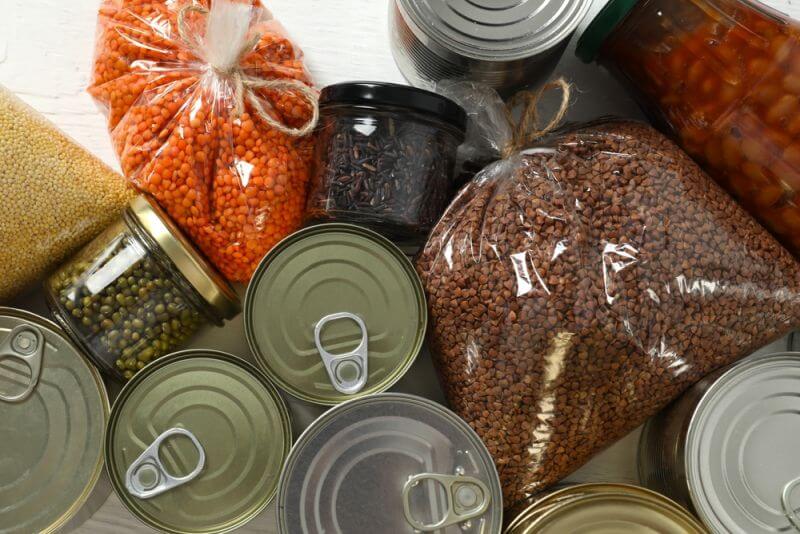The modern concept of food storage or stockpiling was born of farmers, especially pioneer farmers, who brought the necessities to build a homestead with them and farmed the land to survive. For them, a poor harvest could mean starvation and food harvested had to be stored through the winter at least until the first crops of spring began to produce.
They stored not only food, but all necessities. When people store food today, especially dry packed basics such as wheat and legumes, which are the cheapest form of food storage, they often fail to stockpile everything needed to turn those raw foods into edible meals.
Let’s take a look at some of those items which are essential to turning raw foods into edible food in case the day arrives when you are no longer able to buy prepared foods from the store, eat in restaurants or have food delivered to your home.
Wheat Grinder
To turn grain into bread, it must first be ground into flour. Grinding grains and seeds increases the amount of nutrients our bodies get from them during digestion. Absent large gain mills, the grinding of grain and seeds was often accomplished with shaped stones. Unfortunately, for stone to be easily shaped, it must be soft, so and more and larger bits of stone break off during grinding which is hard on tooth enamel. While you can certainly make, or even buy, a metate and mano today, cultures that ate flour processed with this means also chewed enough stone grit to grind their teeth down as they chewed.
I recommend purchasing at least two wheat grinders, a small, packable, hand crank model, and a larger electric wheat grinder that features a shaft that can be fitted with either a hand crank or pulley and driven by a variety of means, from water wheels, to bicycles, to electric motors.
Water Treatment Supplies
You will not be doing much food preparation without plenty of potable water, and disasters that take down the electrical grid also take down water treatment plants, so emergency preparations must include plenty of water and anything necessary to procure and treat more water. For many, this will entail physical hauling water from a nearby surface water source using a handcart and water cans, barrels or lidded buckets. You will also need water for hygiene, laundry and washing dishes, so any tools that can make this chore easier are well worth storing. Provided you have an abundant fuel source, boiling is the preferred method of disinfection, but also store halogens (such as iodine, chlorine dioxide, and even calcium hypochlorite to make bleach stock) for chemical disinfection, flocculants (such as potassium alum) to reduce turbidity (cloudiness), water filters, and prefilters such as coffee filters.
Backup Stoves & Fuel
How do plant to cook and heat your home with the power out? Wood stoves, propane and even kerosene are options, but don’t plan on using your propane BBQ grill. They are not safe to use indoors and are terribly inefficient, wasting precious fuel. Historically, survivors have often turned to burning wood, burning furniture, tearing up wood floors and even harvesting studs from the walls of their homes to keep warm and feed themselves. Personally, I prefer to store fuel in case of emergency. Just be sure to do so safely. It is a safe bet that your local fire chief will not be as enthusiastic about fuel storage as your favorite survival writer.
Pressure Cooker
My wife is afraid of them because she grew up with stories of them exploding, but they can really cut down on preparation time of dried legumes and grains. A pressure cooker is also important for pressure canning and is the next best thing to an autoclave for sterilizing bandages and surgical instruments at home.
Canning Kits, Jars, Lids & Other Canning Supplies
Canning gives the homesteader a way to preserve food from one harvest until the next and to survive years with poor harvests.
Salt: Table Salt, Pickling Salt, Rock Salt
Salt is cheap and has an unlimited storage life when stored properly. It is also very necessary for flavoring and preserving foods. Some on the Lewis & Clark Expedition missed salt so much after they ran out of it, that they built a saltworks on the west coast to produce salt for the return trip.
Karp Lykov, an Old Believer who fled repression by the Russian Orthodox Church in 1937, escaping with his wife and two children to the taiga forest of southern Siberia where they lived in seclusion for more than 40 years, called the lack of salt “true torture.” (Serafino, 2018) This man was no stranger to privation and suffering, losing children during his more than four decades scratching a living out of the dirt in the wilderness and, in his opinion, lack of salt was one of the worst trials he endured, so take his word for it and store plenty of salt.
Iodized salt prevents iodine deficiency which can result in developmental disabilities, and thyroid problems such as goiter. Pickling salt is free of iodine and anti-caking agents. Rock salt is used to make ice cream and also has household uses but is not eaten.
Sweeteners: Sugar, Honey, Artificial Sweeteners, Brown Sugar, Confectioner’s Sugar, Maple Syrup
Cooking from scratch requires a lot of sweeteners. If hardship requires you to switch from your favorite beverage to pine needle tea or similar herbal teas prepared from wild edibles, you will be glad that you stored plenty of sweeteners. Honey is a wonderful sweetener, but more honey is required than sugar to achieve the same effect.
I also suggest storing at least some artificial sweeteners for sweetening oral rehydration salts without affecting the osmolarity and sugar content, especially if you have children, as it may be difficult to get them to drink the mixture without sweetening it first.
Spices
For those who mostly use spices on food that has already been prepared, the amount of spices needed to cook from scratch can be somewhat surprising. You really use a lot of spices cooking from scratch, so we buy the basic ones in large bottles from big box stores.
Dish Soap
Cooking dirties a lot more dishes than takeout or TV dinners and is cheaper and far easier to store soap than to make it. Besides, you will not likely have the resources to make soap unless you prepare to do so ahead of time.
Bouillon
Bouillon cubes or granules are used in broths, soups and gravy base, as well as some recipes for oral rehydration salts. Survivors often make broth, soup or stew during survival ordeals as they often forage small amounts of many different foods. Stewing meat also conserves calories from fat preventing protein toxicity, also known as rabbit starvation, which occurs when people eat too much lean meat.
Broths, soups, and stews stretch limited food reserves and help survivors keep warm. Bouillon also imparts a comforting flavor to wild edibles and helps gamey meat taste somewhat less so. Therefore, bouillon should be stored in bulk. It only lasts a couple of years, but it is cheap.
Oils: Vegetable Oil, Olive Oil, Lard, Vegetable Shortening
Fats and oils are important ingredients and are necessary to grease pans so food will not stick to them. Olive oil (oil) has many uses and can be combined with vinegar (acid), honey (emulsifier … helps the oil and vinegar stay mixed) and seasonings to make salad dressing, which goes a long way to make wild edibles edible and help prevent those consuming them from becoming bored with salad or vegetables from the garden. Absent these ingredients, other oils (coconut, sesame, avocado, sunflower or nut oils), acids (citrus juices) and emulsifiers (mayo, egg yolk, Dijon mustard, maple syrup) can be used to make salad dressing.
Vinegar
In addition to being a food ingredient, vinegar is a weak acid, so it has many non-culinary uses. It can be combined with water and isopropyl alcohol to make glass cleaner and was even used to clean rusty firearms. I read an account of guerillas cleaning up a rusty machinegun with vinegar and then greasing it with butter. They found it in a trench during the Spanish Civil War and put it to good use killing Francoists. They also used the vinegar to flavor wild edibles and vegetables scavenged from gardens.
Leavening Agents: Baking Soda, Baking Powder, Powdered Yeast, Sourdough Starter
Leavening agents are what makes leavened bread rise, making it lighter and softer and giving it the familiar texture of bread. Without them, bread is dense and hard. Baking soda can also be used as toothpaste, deodorizer, cleaning agent, and deodorant. It can also be used to extinguish grease fires, neutralize acids, and has a vast array of gardening and medical uses. Yeast must be rotated every couple of years but is not expensive. Baking powder can be tested by putting a small amount in a cup of warm water to see if it creates bubbles.
Sprouting Seeds & Supplies
Sprouting is a good source of natural vitamins and another way to use some of your grains and seeds. Sprouts can give you fresh vegetables in the dead of winter and the change in texture can also help manage the boredom with eating food storage.
Baby Formula
If you have babies in the family, you should be storing formula. We were very glad that we had stored extra formula during the formula shortage.
Vanilla Extract
Baked goods just aren’t the same without real vanilla.
Thickeners: Corn Starch & Dry Gelatin
Thickeners are important for gravy, soups, and stews. Corn starch is the more important of the two to me.
Beverage Powders: Gatorade Powder, Tang, Kool-Aid, Coffee, Tea
Beverages are nice to have and can go a long way to making any survival ordeal more bearable by providing some variety.
Hard Candy
According to the book “Making the Best of Basics” hard candy lasts up to a few years, but we tried some candy that was in storage for more than 30 years and it was still OK. The taste wasn’t as good as when it is fresh, but it was still good to eat.
Hand Crank Salad Chopper
Our family’s salad chopper is at least 50-60 years old, but similar hand crank devices are still produced. It sticks to the countertop with suction cups and has different metal cups with blades machined into the walls. You install a cup, feed food down the chute, and crank the handle and it slices and grates food in many different shapes and sizes. It is more like a food processor than a salad chopper. No electricity required.
Hand Crank Bread Mixer
Kneading dough by hand is another kitchen chore that can do with a little mechanical advantage. If you haven’t ever ground wheat into flour and baked bread at home from scratch, it is an important skill to learn. It is also very rewarding. There is no comparison to fresh baked wheat bread and store-bought bread!
References
Serafino, J. (2018, July 26th). The Russian Family That Cut Itself Off From Civilization for More Than 40 Years. Retrieved from Mental Floss: https://www.mentalfloss.com/article/551659/karp-lykov-russian-family-secluded-from-civilization-40-years










Ronald H Levine | December 19, 2024
|
Regarding Sugar;
Stores forever – just keep dry.
This is an item that I don’t know of any home gardner growing and for most sugar consumers, it’s not grown locally. I haven’t even heard of preppers seeds for sugar cane nor sugar beets. It’s also labor intensive and you would be competingwith a very efficient industry that is perhaps heavily subsidized. Conclusion: store lots of sugar. Anyone else ever hear of preparedness for sugar other than storage?
John | December 19, 2024
|
I don’t know about cane,but sugar beet seed is available. We have lots of seeds stored and sugar beet seed is just one of many. How to make sugar from them, I leave to others in our MAG. I can’t do everything. I will learn how if and when the SHTF. Until then, I will concentrate on the basics and have others in our mag, that know more about farming do their thing. A lot of preppers try to learn 10,000 things and end up without knowing how to survive. That’s why you need to be part of a MAG to spread out the responsibilities. If a person thinks they can survive the SHTF by their own skills, I personally don’t think they will last long. At least 8 people that have or are willing to learn skills that will help the MAG is what I would say is the minimum. Just my thinking. For all those lone wolfs, best of luck. Have a very extensive library and good luck.
Ron | January 15, 2025
|
I just looked at the bullion cube online. What a horrible thing! Just read customers’ comments…